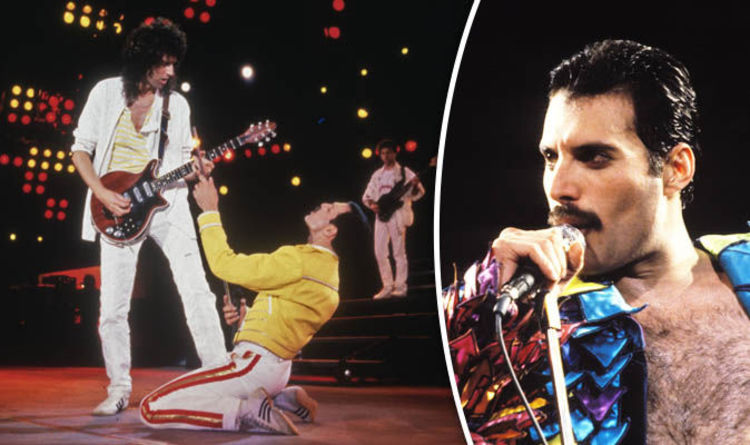
Freddie Mercury Pauses Queen Concert to Pay Tribute to John Lennon with Moving “Imagine” Rendition
On December 9, 1980, the stage at Wembley Arena became the setting for something far greater than a rock concert — it became a space for collective mourning and quiet reverence. Just one day after the shocking news of John Lennon’s assassination, Queen took the stage, visibly affected like so many others around the world.
What followed was not part of the planned setlist, but a heartfelt response to tragedy. During their Game Tour — already a career-defining moment — Queen paused the spectacle and delivered an intimate, soul-stirring rendition of Lennon’s Imagine. It wasn’t just a cover; it was a tribute shaped by grief and grounded in respect.
The audience felt it too. The usual energy of a live show gave way to stillness, reflection, and emotion. On that night, the music wasn’t just heard — it was felt deeply. The crowd hadn’t only come for a performance. They came to process, to remember, and to find solace in a shared moment of loss.
Freddie Mercury, known for his dynamic presence and larger-than-life performances, stepped into a different role that night — one of quiet reverence. As he sat down at the piano, a hush settled over the crowd, signaling that this was no ordinary moment.
There was no grand introduction. Queen began Imagine with a simplicity that spoke volumes. Gone were the theatrics; in their place was a tender, unadorned tribute. Freddie’s voice, softer than usual but rich with feeling, allowed the weight of the moment to speak through every word. The performance wasn’t just heard — it was felt.
Not Just a Song — A Statement from the Heart
Performing covers mid-tour was never typical for Queen—especially not ones as understated as this. But John Lennon’s influence was impossible to ignore. His legacy shaped generations of musicians, including Queen, whose own groundbreaking sound was made possible by the trailblazing work of The Beatles.
Their choice to perform Imagine wasn’t about musical showmanship. It was an offering—a quiet stand in solidarity, a heartfelt tribute, and a universal call for peace.
There were no dramatic visuals or over-the-top effects that night. Instead, the real power came from the voices in the crowd—some singing, others quietly weeping or simply swaying in stillness. Queen’s performance wasn’t meant to dazzle. It was meant to honor, to remember, and to heal.
A Performance That Lingers in Memory
Although it was never officially released, Queen’s tribute lived on in the hearts of fans—and in scattered bootleg recordings and grainy video clips that captured the moment. What began as a single act of remembrance evolved into a recurring homage, as the band continued performing Imagine across their 1980 European tour. Each rendition carried the same depth of feeling, the same quiet reverence.
Decades later, rare footage still surfaces—like the now-cherished clip from Frankfurt—serving as a powerful reminder of how music can transcend time. Through it, Queen’s tribute continues to speak: of loss, of unity, and of the healing strength found in song.




